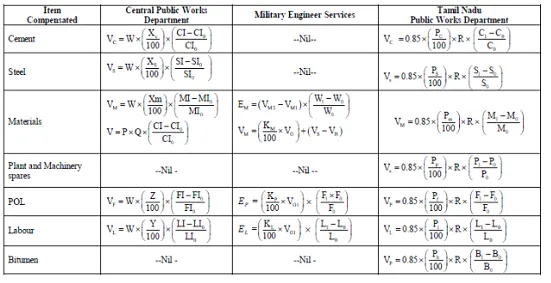Last Updated on February 3, 2025 by Admin
Construction project cost escalation is the difference between actual project costs (after construction) and preliminary budget projections. Numerous things, including design modifications and the high cost of materials, equipment, and labor, might contribute to this (i.e., more than initially anticipated).
ConstructionCareerHub App is LIVE — built ONLY for construction careers. Don’t apply with a weak resume.
Get ATS-ready Resume Lab + Interview Copilot + Campus Placement Prep (resume screening, skill gaps, interview readiness) — in minutes & Other advanced features.
Explore Smarter Construction Career Tools →Quick check. Big impact. Start now.
The cost of their projects is something those general contractors spend a lot of time balancing. They need to keep their material, labor, and overhead costs under control and keep getting paid by their customers in order to remain profitable. The task is challenging, and a variety of factors influence a contractor’s capacity to complete it. The fluctuating costs of labor and materials are one such aspect. It would be great if the price of building materials or fuel at the beginning of the project was the same as it was at the midway point. Sadly, that’s not usually the case, especially in our unstable economy.
The escalation clause is the contractor’s main defense against this. A contract’s escalation clause specifies how fees, wages, or other payments will be adjusted to reflect changes in the price of labor or other inputs. This clause transfers the contractor’s liability for rising labor and material expenses to the client.
Numerous factors, including taxes, interest rates, market circumstances, risk allocation clauses in contracts, and inflation, contribute to escalation. It is a risk that, particularly in long-term projects where the variability and uncertainty are greater, can contribute significantly to the cost of construction. As a result, it’s important to evaluate the possibility of cost growth in construction plans.
Table of Contents
What is an Escalation clause in a construction project?
Escalation clauses are contract modification provisions that, when combined with force majeure clauses, provide contractors power over situations that would otherwise be out of their control. Escalation provisions specify that the builder is allowed to modify the price agreed upon in the contract if a specific force majeure event results in a price increase (in either all materials or a single one, such as steel).
A clause in a contract known as an escalation clause (also known as an escalator clause) ensures that the agreement price will alter once a specific element outside the control of either party that affects value has been identified. Escalation clauses are frequently inserted in contracts as a result of rising prices.
The clause gives the contractor the right to request a greater value for the contract if the cost of materials, plants, labor, and equipment rises by more than a specified percentage (5 percent, 10 percent, etc.). This clause is utilized when a cost-plus contract is entered into as well as when a settled price is quoted for the contract.
For instance, utilizing a fixed-price contract, Builder B promises to construct a home for Purchaser P. Due to supply chain hiccups, the cost of lumber has increased by 30% throughout the home’s construction.
Builder B has incorporated an escalation clause in his home building contract that stipulates that should a force majeure event happen; he is entitled to an equitable price adjustment instead of bearing the cost. Supply chain disruptions are considered a sort of force majeure incident under the force majeure provision, which activates the escalation clause. This shields Builder B’s job profit margins from rising material costs.
What is the De-escalation clause in a construction project?
The opposite of an escalation clause is a de-escalation clause. A contract’s de-escalation clause stipulates those prices will drop if specific costs go down. The de-escalation clause’s justification is that the client ought to get some of the savings if the supplier of the products and services uses fewer resources to fulfill the contract’s general clauses.
Example: Depending on the price of fuel at the time a contract is signed, shipping charges could be greater than usual. De-escalation clauses will make up for this by reducing the agreed-upon shipping fee as gas prices decline. If the thing is maintained loses value, a de-escalation clause might state that maintenance expenses will be lowered.
The cost to the customer also falls if the price of the raw materials used to fulfill the contract declines. Consumers can avoid paying excessive fees throughout the course of a contract that was signed in an unusual situation by using a de-escalation provision.
What Costs Are Subject to Escalation Clauses?
Any expense that is susceptible to change depending on the state of the market may be covered by escalation clauses. Escalation clauses, however, are most frequently used in connection with the price of fuel, steel, and asphalt.
Fuel prices: If you keep up with the news, you are aware that oil prices change frequently and that there can be significant spikes and dips over the course of a year. Contractors are protected from these changes by escalation clauses.
A fuel escalation provision may be added at the contractor’s request or, in some cases, if the Owner anticipates future issues with oil-derived products. When only the contract price is modified, either upwards or downwards by a predetermined percentage, a fuel escalation clause might be taken into account.
The Fuel Escalation Clause’s price adjustment aims to reduce the Contractor’s exposure to sudden increases in the cost of particular items. The Contractors are not covered by the Gasoline Escalation provision against changes in fuel prices on a daily basis. However, they are helpful to safeguard the Contractor from price changes that are not ordinarily taken into account on a daily basis.
Costs associated with steel: An escalation clause can be used in this situation to account for changes in the steel cost adjustment index.
Another condition that is frequently included in contracts involving more than a million pounds of steel is the escalation clause for steel goods. The fuel escalation clause’s importance rests in the fact that it only applies to pre-determined goods and that the contractor must request them. Only reinforced steel, structural steel, steel piling, dowel bars, tie bars, beam elements, and metal posts for guardrails are exempt from the steel escalation clause.
The progress payment may be changed either upwards or downward using a steel escalation clause depending on the steel cost adjustment index. Typically, the average price of #4 reinforcing bars and hot-rolled carbon steel plates from national periodicals is used to calculate the steel cost adjustment. For any steel-based products with mill delivery dates earlier than the bid date of the contract, there will be no steel pricing modifications. Additionally, a top gap of material being examined will be established using a maximum amount of steel material.
Asphalt: Escalation clauses for asphalt relate to variations in asphalt cement based on the regional average price.
Some contracts have an escalation clause for only products using asphalt cement. Liquid asphalt and emulsified asphalt are typically not covered by the asphalt escalation clause. The progress payment may be changed either upwards or downwards in accordance with the terms of the contract.
Prices under the asphalt escalation clause will be based on asphalt cement selling prices. The average high and low selling prices for the specified geographic area or the entire state will be used to compare asphalt prices. If the price of “Asphalt Cement” changes by more than 10%, the adjustment for that product will be subject to an increase or decrease in line with the provisions below.
It’s critical to remember that escalation clauses are designed to shield contractors against sudden price rises that go above the usual range of market rates.
Escalation Formulae adopted in the construction industry
The escalation formulas for construction contracts that various Indian government departments and agencies have implemented
You can learn more about the PRICE ADJUSTMENT FORMULA for Escalation by visiting the following link: https://www.linkedin.com/pulse/estimating-projects-escalation-while-bidding-using-b-ramalingam
Benefits of including escalation clauses in your building contracts
The effectiveness of the escalation clause depends on the client’s readiness to accept it as a component of a working agreement. Escalation provisions are beneficial to owners since more contractors will submit lower bids because they will feel more at ease doing so. Escalation provisions, however, can be problematic because the prices that are provided aren’t guaranteed. It can be difficult to estimate project costs in the end.
Be sure to When informing your client of a price increase,
⦁ get in touch with the clients directly via phone or email;
⦁ Give an explanation of the price rise, as many homeowners might not be aware of the difficulties your company is experiencing;
⦁ Make the client aware of the precise clauses in the contract that give you permission to increase the price;
⦁ Being understanding of their perspective, since discussing growing costs with them can be one of the most challenging talks to have.
Protect your profits
First, escalation clauses give you the chance to safeguard your companies in an environment marked by intense demand, erratic market conditions, and erratic supply chains. Builders that have escalation clauses can relax about the negative effects on their job profit margins when prices increase.
You might be interested in
- What type of roofing is the best for my house?
- How Metal Suppliers and Manufacturers Can Avoid Supply Chain Issues
- Best Times In The Year To Rent A Car In Dubai
- Insight into Proper Ways to Estimate the Value of a Property
- Tips For Driving Down Fleet Fuel Bills
Reduce job delays
Escalation provisions also lessen any job delays. When the builder increases the price of the property, disputes frequently occur, which can cause delays in the construction process and scheduling difficulties. However, by putting an escalation clause in the original contract, you have a legal clause you may use as support for increasing pricing.
Improve client relations
Escalation provisions also foster open communication between you and the client. Transparency is essential to a solid contract, as we’ve already stated. Escalation clauses help to establish clear expectations between the parties right away. The better your business relationship with your client will be, the more transparent you may be, especially when it comes to cost-related issues.
Final Thought
The building industry has been impacted by price increases over the past year, which has resulted in several issues and forced many developers to reevaluate their plans. Construction projects that experience price escalation is delayed, have their scopes reduced or are canceled. Because prices submitted are not guaranteed for an extended period of time, escalation clauses may potentially have a negative effect on public projects. In the past, general contractors could hold suppliers and subcontractors to their quotations for 60, 90, or maybe 120 days.
Owners are finding fewer bidders for their projects as a result of escalation fears. Some initiatives must find alternate financing sources or must be abandoned if more cash is not available. Because most construction contracts do not contain price escalation provisions, contractor and supplier concerns about anticipated future price increases frequently result in higher contract pricing and higher project costs.
Related Posts:
- Construction Claims Management: The Ultimate Guide
- Construction Contracting: Understanding Types Of The Construction Contract
- What is the Impact of Rising Prices on Construction Costs in 2025 and Beyond
- The Ultimate Guide to EPC Contractors: Meaning, Role, and How They Shape Modern Construction



